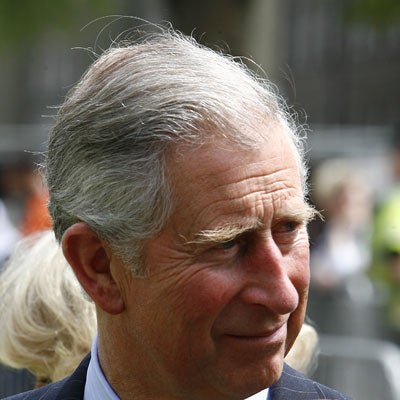How Prince Charles increased his profits – but paid less tax

Your support helps us to tell the story
From reproductive rights to climate change to Big Tech, The Independent is on the ground when the story is developing. Whether it's investigating the financials of Elon Musk's pro-Trump PAC or producing our latest documentary, 'The A Word', which shines a light on the American women fighting for reproductive rights, we know how important it is to parse out the facts from the messaging.
At such a critical moment in US history, we need reporters on the ground. Your donation allows us to keep sending journalists to speak to both sides of the story.
The Independent is trusted by Americans across the entire political spectrum. And unlike many other quality news outlets, we choose not to lock Americans out of our reporting and analysis with paywalls. We believe quality journalism should be available to everyone, paid for by those who can afford it.
Your support makes all the difference.The Prince of Wales was accused of "green washing" his finances after publishing accounts which showed he paid less tax last year while earning £1m more.
Prince Charles achieved the enviable position by off-setting his payments to the Inland Revenue with a series of green purchases, including a converter for his Aston Martin to allow it to run on bioethanol and installing woodchip boilers in his home.
The Prince's investment in green electricity supplies and a further reduction in travel-related emissions allowed him to claim that his household had generated 18 per cent less CO2 than the year before.
Part of the reduction was achieved by converting his range of Jaguars, Audi and Range Rover to run on biodiesel made from used cooking oil. Prince Charles's much-cherished Aston Martin has been converted to run on surplus wine from English vineyards.
His advisers claimed this represented a huge success in his battle against climate change and followed on from his declaration last year that his household was carbon neutral.
But the report, published yesterday, revealed that that Prince Charles was able to use this "green expenditure" to ensure that he paid less income tax, while during the period his revenues increased by 7 per cent to £16.273m, and his profits grew by more than £360,000 to £8.276m.
Clarence House said the accounts also revealed the cost of the Prince's official travel by air and rail fell 22 per cent, from £1.4m to £1.1m. Journeys by aircraft and trains are paid for by the taxpayer through grants-in-aid.
But such cuts were slightly undermined when it emerged that Prince William had made five controversial helicopter flights while training with the RAF, at a cost of more than £50,000. The trips, which included flights to a stag party and another to the family home of Prince William's girlfriend, Kate Middleton, have been criticised as an alleged abuse of military training.
Critics of the financial arrangements of the Prince and the Duchy of Cornwall, his private estate and business, said Clarence House had used spin to disguise the tax position.
Graham Smith of Republic, which campaigns for an elected head of state, said: "The Clarence House PR team always attempts to divert attention from the Duchy's tax arrangements by pointing to the reduction in Charles's carbon footprint. This is all an attempt to distract us from the real issue – that these year-on-year increases in Charles' income are greatly helped by the fact hat the Duchy is not subject to the same tax rules as the rest of us."
Clarence House insisted that all the Prince had done was to behave like any other ordinary householder who was trying to balance the books. "The Prince of Wales is not getting any special favours, he is paying income tax like everybody else," it said.
George Bull, the head of tax at the accountants Baker Tilly, said the Prince of Wales was taking advantage of green tax reliefs, known as enhanced capital allowances, that would have had to be agreed with the Inland Revenue.
He said: "The important thing to remember is that the agreement to pay tax is a voluntary one between the Prince and the tax authorities. We simply don't know what precise arrangements have been agreed. His use of green tax relief, if that is what he has done, is not something only available to the Prince. It is open to all businesses and individuals."
Sir Michael Peat, the Prince of Wales's principal private secretary, said of the Prince's accounts: "I hope it shows a good picture ... The Prince of Wales has a special knack of putting his finger on issues of underlying and long-term importance and for seeing beyond fashion and political correctness, and there are some good examples in the annual review."
Join our commenting forum
Join thought-provoking conversations, follow other Independent readers and see their replies
Comments